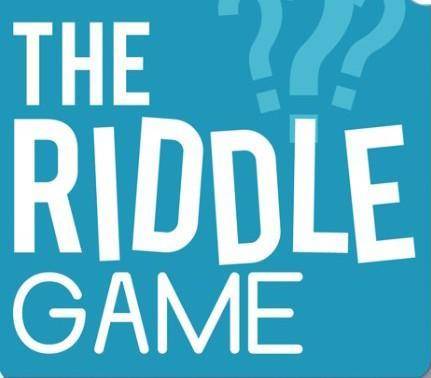> Do not cheating and Do not lookup/searching <

Law, 16.04.2021 14:00 anaisabelx7654
--Game Riddle--
DETECTIVE TIME!
> Do not cheating and Do not lookup/searching <
(warning: may contain offensive language)
- George Smith was murdered on Sunday evening. There were 5 other people in his house: Mr. Smith's wife, his personal cook, a butler, a housemaid, and a gardener. They all told Detective Stevens what they were doing that evening:
Mrs. Smith was reading a book near a fireplace.
The cook was making breakfast.
The butler was giving instructions to workers in the living room.
The housemaid was washing the dishes.
The gardener was watering plants in the greenhouse.
Right after all the conversations, the detective arrested the murderer. Who was the killer, and how did Stevens find the criminal? The answer is on the back.
- The detective was speaking to a doctor in a waiting room when a dismayed man rushed in and screamed, "Someone shot my wife!"
The detective asked the man to tell him everything. The man, Mr. Clark, said that he was at work when his housekeeper called him and said that something terrible had happened to his wife and that she was in the intensive care unit. He hung up immediately and went to the hospital.
When Mr. Clark finished his story, the detective arrested him on an attempted murder charge. Why did he do this?
- A millionaire was shot in the forehead at home. The detective spoke to the millionaire's 3 sons, Jack, John, and James, who were at home.
Jack said that night John, their father, and he had been at an official reception. They arrived home and entered the living room: his father came in, and then John and Jack. When their father came up to the stairs, James entered the living room and shot their father.
John confirmed Jack's information.
James said he had visited his friends that night. When he arrived home, his father was already dead.
The detective understood everything immediately. Who was the killer, and how did Stevens resolve that case?
- Mr. and Mrs. Clyde went on a trip to the mountains. But 2 days later, Mr. Clyde returned home alone. He went to the police and said that Mrs. Clyde had fallen to her death.
The next day, Detective Stevens visited Mr. Clyde and arrested him for his wife's murder. Clyde confessed his guilt and asked the detective how he'd found out he was the murderer. Stevens said he'd simply called a travel agent and asked for some information.
What did the travel agent say to the detective?
- One morning, the detective had an argument with his wife and went away without his cell phone and keys. In the evening, when he returned home, he found his colleague, his scared wife, and a murdered man. Stevens's wife told her story:
"I was sitting in the living room when I heard the doorbell. I thought it was my husband and opened the door. But a criminal pushed me, and so I stabbed him with a knife."
The detective ordered the policeman to arrest his wife because she had planned to kill him.
How did the detective figure it out?
Questions by Bright side


Answers: 1


Another question on Law

Law, 03.07.2019 15:10
The exclusionary rule states that if evidence is found during an illegal search, it must be destroyed immediately. cannot be admitted into consideration. can be admitted into court anyway. cannot be admitted into court unless a judge agrees.
Answers: 1

Law, 16.07.2019 06:20
How can you tell that you're driving in the right direction? options are a. there is a white line on your left and a yellow line on your right. b. there are yellow lines on both sides of your vehicle. c. there is a double yellow line on your right. d. there is a yellow line on your left and a white line on your right.
Answers: 1

Law, 16.07.2019 17:20
Which best describes the basis for the right to privacy in the united states? a. the right to privacy is a civil liberty that places limits on government power through the constitution, especially the bill of rights. b. in griswold v. connecticut, the supreme court defined the right to privacy by incorporating the fourth amendment and the right of people to be secure; the self-incrimination clause of the fifth amendment; the ninth amendment; and the due process clause of the 14th amendment. c. the right to privacy is embodied in the words of u.s. justice louis brandeis, "the right to be left alone." d. the term privacy is not in the constitution or bill or rights but it does exist.
Answers: 1

Law, 16.07.2019 19:20
There are certain modes of governing the people which will succeed. there are others which will not. the idea of consolidation is abhorrent to the people of this country." —william grayson, 1788 which of the following is a true statement about this quote? 1) it represents a federalist viewpoint on the relative power of the central government. 2) it represents an anti-federalist viewpoint on the relative power of the central government. 3) it represents a federalist viewpoint on the need for protection of individual liberties. 4) it represents an anti-federalist viewpoint on the need for protection of individual liberties.
Answers: 1
You know the right answer?
--Game Riddle--
DETECTIVE TIME!
> Do not cheating and Do not lookup/searching <
> Do not cheating and Do not lookup/searching <
Questions

Mathematics, 06.04.2021 17:20

Mathematics, 06.04.2021 17:20




Mathematics, 06.04.2021 17:20

History, 06.04.2021 17:20


English, 06.04.2021 17:20

Mathematics, 06.04.2021 17:20


Mathematics, 06.04.2021 17:20



English, 06.04.2021 17:20

History, 06.04.2021 17:20

Mathematics, 06.04.2021 17:20


Mathematics, 06.04.2021 17:20

Biology, 06.04.2021 17:20



